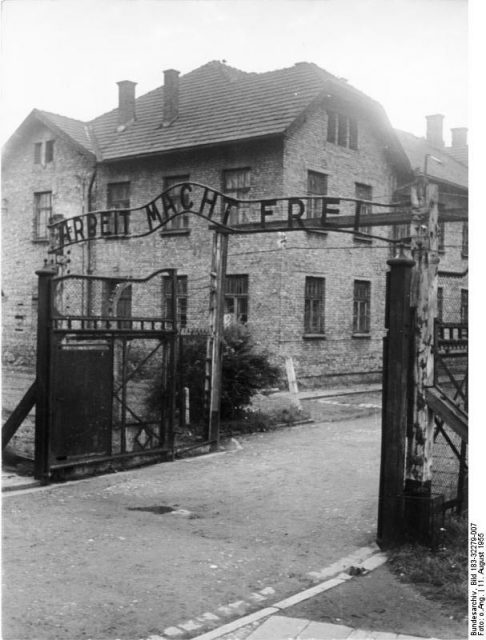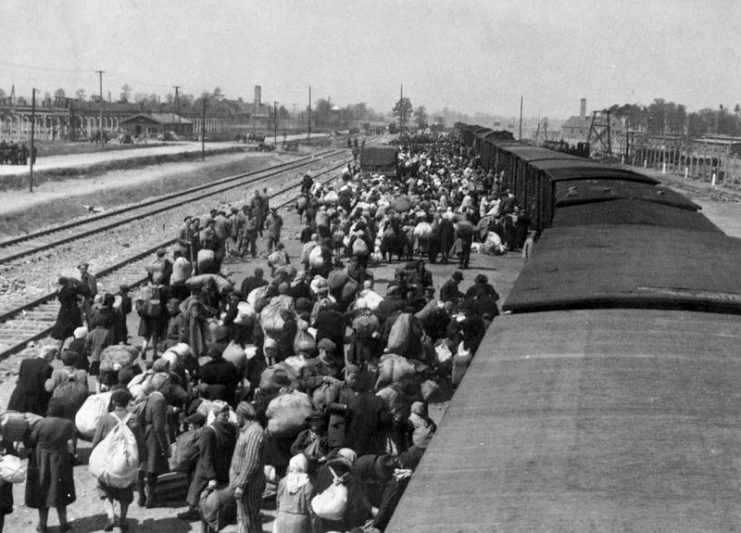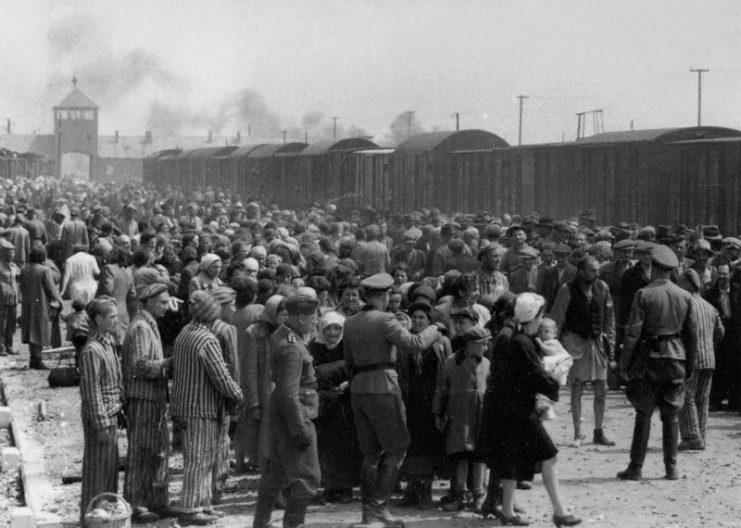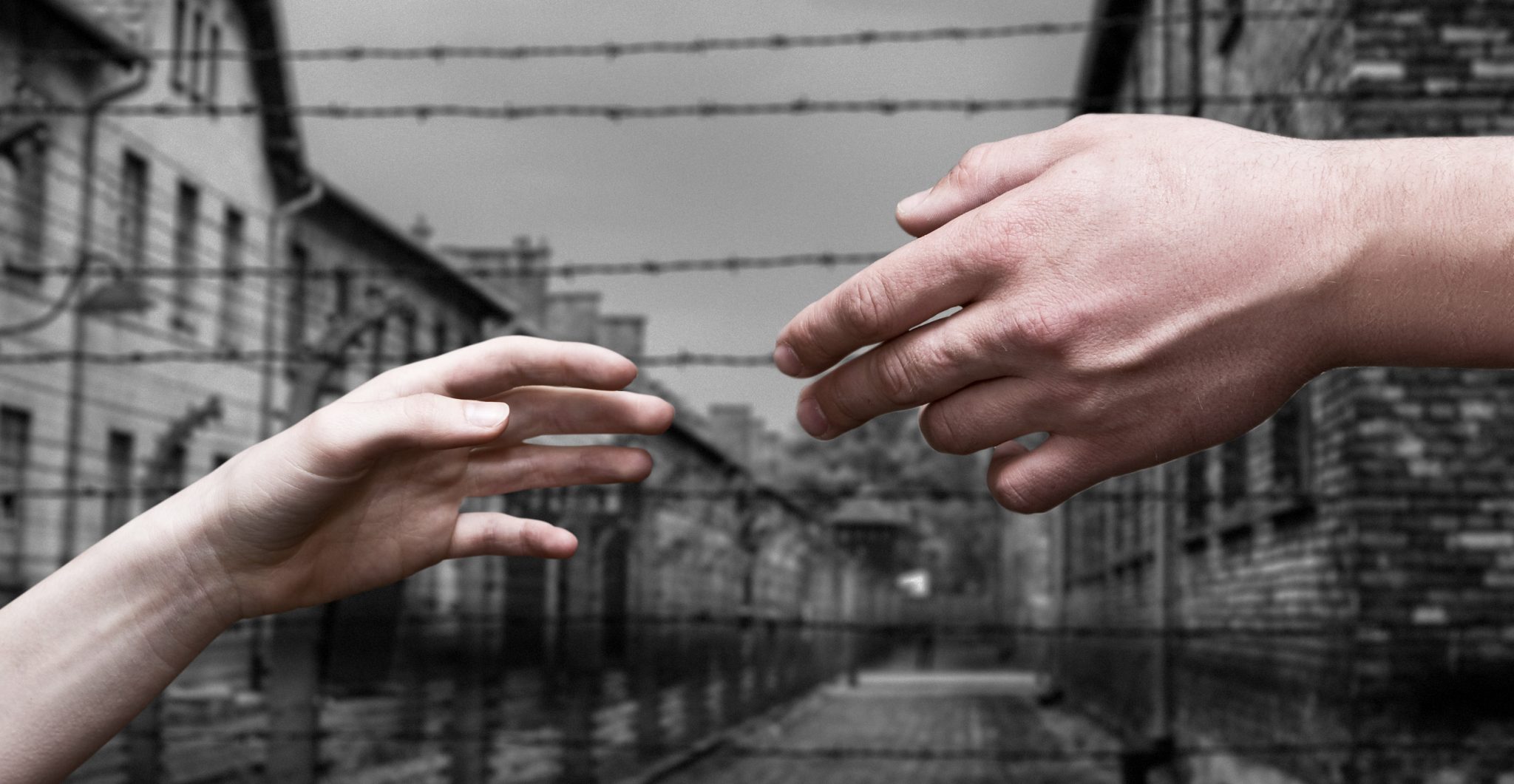In 1933, the Nazi regime took control of Germany. Almost immediately, they began drafting the Nuremberg Laws. These laws banned relationships between “Aryans” and Jews.
A new novel from Kate Breslin is controversial because it is about just such a relationship. In the book, an SS commandant at a concentration camp falls in love with one of the prisoners. In fact, such relationships actually did develop in the Third Reich.
Possibly the least likely location for such a relationship was the Auschwitz death camp. But precisely because of the horrible crimes committed there, it was a place where people would do anything to survive and to save their families.

Helena Citronova was one of those prisoners at Auschwitz. She was able to save her own life and the lives of her family members by returning the affections of an SS guard.
She slept with Franz Wunsch and eventually confessed to having fallen in love with him. But her original motive was just to save her life.
Citronova was a Jew living in Slovakia. After being sent to Auschwitz, she was put to work in a large warehouse known as “Canada” where the belongings of the victims were sorted before being sent to Berlin to fund the war effort.
In 1942, she met Wunsch. She was asked to sing for Wunsch’s birthday. Had this not happened, she would have died. She had already been selected for the gas chamber earlier that day.
Wunsch passed her a note that said he had fallen in love with her. She immediately destroyed it but saw the word love before she did. Wunsch even went so far as to save Citronova’s sister from dying.
Still, Citronova felt nothing but hatred for the SS guard at first. She felt like she would rather be dead then get involved with someone in the SS.

Her feelings for Wunsch eventually changed, especially after her sister’s children came to Auschwitz and Wunsch tried to save them. Wunsch saved Citronova’s sister by saying that she worked for him in “Canada” but he was not able to save her children.
Citronova and her sister survived the Holocaust and, though nothing further happened with Wunsch, Citronova testified on his behalf at his war crimes trial.
Citronova died in 2005. In an interview before her death, she said that sometimes she forgot that she was a Jew and he was not. She admitted that she eventually grew to love him, but the relationship could never have worked out.

In another interview, she said that she had not forgotten anything from their relationship. When she was younger, she didn’t think about it, but as she grew older, the memories came rushing back to her. Everyone knew about their relationship. She said that it left a stain on her but that it saved her life. It was something that could only have happened in that time and place.
Wunsch, who was born in Austria, was described as a natural hater of Jews. He sometimes served on the “Ramp” at Auschwitz where prisoners were selected for the gas chambers. At his war crimes trial in Vienna in 1972, witnesses spoke about his violent behavior and how he beat both women and men.
At least once, he dropped the poisonous pellets that killed the prisoners in the gas chambers.
He claimed that his behavior changed after meeting Citronova. He said that he became another person after meeting her.
Even though the judge found that the evidence implicated Wunsch of war crimes, all the charges were dropped due to the statute of limitations on war crimes in Austria.
